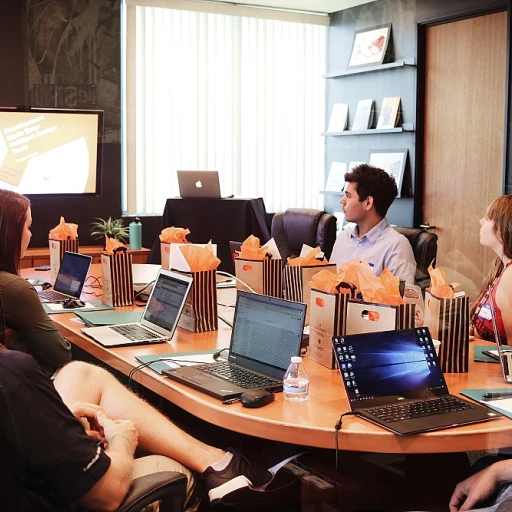
Understanding the evolution of background checks
How Background Checks Have Changed Over Time
Background checks have come a long way from their early days, when employers relied mostly on manual reference calls and paper records. Today, the process is far more advanced, with digital tools making it easier to search for criminal history, verify employment, and review a candidate’s background in detail. This evolution has been driven by the need for more reliable data, faster turnaround times, and a growing awareness of risks in hiring decisions.
In the past, background screening was often limited to basic criminal record checks or simple employment verification. Now, advanced background services can include:
- National criminal record searches
- Social security number verification
- Case review for criminal background and civil records
- Employment background and education verification
- Social media screening
Employers today expect more comprehensive background checks to help reduce the risk of errors and make informed hiring decisions. The shift toward digital records and automated background services has also introduced new challenges, such as managing data privacy and avoiding check errors that could unfairly impact candidates.
As the scope of background screening expands, so does the complexity of the process. Pre employment checks now often include a wider range of data sources, including state and national criminal databases, credit history, and even driving records. This increased depth helps employers get a clearer picture of a candidate’s history, but it also raises questions about balancing thoroughness with privacy and compliance.
For those interested in how these trends intersect with specific industries and legal requirements, you can learn more about non-trucking liability in the context of background check trends and how it shapes the background check process for specialized roles.
Key components of an advanced background check
What Sets Advanced Screening Apart?
Advanced background checks go beyond the basics. While traditional checks might focus on criminal records or employment verification, today’s advanced background services offer a much broader view. Employers now expect a comprehensive process that covers multiple data sources, ensuring a more accurate picture of a candidate’s history.
- Criminal history and records: A thorough search of national criminal databases, state repositories, and local court records is standard. This helps employers identify any criminal background that could impact hiring decisions.
- Employment verification: Advanced employment background checks confirm previous job titles, dates of employment, and sometimes even reasons for leaving. This helps reduce the risk of resume fraud.
- Education and credential verification: Checking degrees, certifications, and licenses is crucial, especially in regulated industries.
- Social security and identity verification: Ensuring the candidate’s identity matches official records helps prevent identity fraud and errors in the screening process.
- Social media and online presence: More employers are including a review of public social media profiles to assess professionalism and cultural fit, while respecting privacy boundaries.
- Case review and reference checks: Direct contact with references and, in some cases, a deeper review of civil litigation or regulatory actions can provide additional insights.
Reducing Errors and Improving Accuracy
One of the main challenges in background screening is minimizing errors. Mistakes in criminal record searches or employment verification can lead to unfair hiring decisions. Advanced background check services use multiple data sources and cross-verification to help reduce check errors and ensure that records are up to date. This is especially important for pre employment screening, where a single error can have significant consequences for both employers and candidates.
Integrating National and State Data
Modern background checks rely on both national criminal databases and state-level records. This dual approach helps employers avoid missing critical information that might not appear in a single database. For instance, a national criminal search might flag an issue, but a state or local check can provide the details needed for a fair case review.
Why Comprehensive Checks Matter
Employers are increasingly aware that incomplete or outdated background screening can expose them to risks. Whether it’s a missed criminal record or an overlooked employment gap, these gaps can lead to poor hiring decisions. That’s why advanced background services are designed to be as thorough as possible, balancing speed with accuracy and compliance.
For a deeper dive into how liability concerns intersect with background check trends, see this analysis of non-trucking liability in background check trends.
The impact of technology on background check trends
How digital transformation is reshaping background screening
The rapid evolution of technology has fundamentally changed the way background checks are conducted. Today, advanced background screening relies on digital tools and automation to deliver faster, more accurate, and comprehensive results. This shift is particularly evident in employment background checks, where employers need to make informed hiring decisions quickly and efficiently.- Automated data search and verification: Modern background services use automated systems to search national criminal databases, verify social security numbers, and cross-check employment history. This reduces manual errors and speeds up the process.
- Integration with digital records: Access to digital criminal records, court case review platforms, and online employment verification services allows for a broader and more reliable screening process.
- AI-powered analysis: Artificial intelligence helps flag inconsistencies in candidate data, identify potential check errors, and even monitor social media activity as part of the pre employment screening process.
Data accuracy and the risk of errors
While technology has improved the efficiency of background checks, it also introduces new challenges. Automated systems can sometimes misinterpret data, leading to errors in background reports. For example, outdated or incomplete criminal history records can result in inaccurate employment screening outcomes. Employers must remain vigilant, regularly auditing their background services to minimize errors background and ensure fair hiring practices.Regulatory compliance and privacy concerns
The increased use of technology in background screening means that compliance with state and federal regulations is more important than ever. Employers must balance the need for thorough background checks with respect for candidate privacy. This includes following proper procedures for pre-adverse action and adverse action notices. For a detailed overview of these requirements, see this guide on pre-adverse action in background checks.Emerging trends in background check technology
Some of the most notable trends in advanced background screening include:- Mobile-friendly background check platforms for both employers and candidates
- Real-time criminal record updates and continuous monitoring services
- Enhanced data security protocols to protect sensitive candidate information
Balancing privacy and thoroughness in screening
Finding the Right Balance in Background Screening
Employers today face a real challenge: how to conduct advanced background checks that are both thorough and respectful of privacy. As background screening becomes more sophisticated, the need to protect candidate data and comply with privacy laws is more important than ever. The process of employment background checks often involves searching through criminal records, employment history, social security verification, and even social media activity. While these checks help employers make informed hiring decisions, they also raise concerns about overreaching into a candidate’s private life.- Data minimization: Only collect the information that is truly relevant to the job. For example, a national criminal background check may be necessary for some roles, but not all positions require a deep dive into every aspect of a candidate’s history.
- Transparency: Clearly communicate with candidates about what background services will be used, what data will be searched, and how their information will be protected.
- Compliance: Follow state and federal regulations regarding background checks, such as the Fair Credit Reporting Act (FCRA), to avoid legal pitfalls and protect candidate rights.
- Accuracy: Double-check records and data to prevent errors background issues, which can unfairly impact a candidate’s chances. Mistakes in criminal history or employment verification can lead to wrongful hiring decisions.
Common pitfalls and how to avoid them
Common Mistakes in Background Screening Processes
Even with the rise of advanced background check technologies and services, mistakes still happen. These errors can have serious consequences for both employers and candidates. Understanding where things often go wrong in the background screening process can help organizations make better hiring decisions and protect their reputation.
- Incomplete or Outdated Data: Relying on outdated criminal records or missing key data points can lead to overlooking important aspects of a candidate’s history. Regularly updating background services and verifying the sources of information is crucial.
- Errors in Identity Verification: Simple mistakes in social security numbers or personal details can result in mismatched records. This can cause delays or even wrongful disqualification of a candidate. Double-checking identity data helps reduce these errors.
- Overlooking State and National Criminal Records: Some employers focus only on local checks, missing out on national criminal databases. A thorough search should include both state and national criminal history to ensure a complete review.
- Ignoring Social Media and Online Presence: While not always part of traditional employment screening, reviewing a candidate’s public online activity can provide additional context. However, this must be balanced with privacy considerations and compliance with relevant laws.
- Failure to Comply with Legal Requirements: Each state has its own rules for background checks, especially regarding criminal background and employment screening. Not following these regulations can expose employers to legal risks.
- Inadequate Communication with Candidates: Not informing candidates about the background check process or failing to provide them with a chance to correct errors background can damage trust and lead to disputes.
How to Strengthen Your Background Check Process
To avoid these pitfalls, employers and background services providers should:
- Use advanced background screening tools that aggregate data from multiple sources.
- Regularly audit and update their background check process to reflect changes in laws and best practices.
- Train HR teams on how to interpret criminal records and employment history accurately.
- Implement a clear case review protocol for disputed findings or check errors.
- Maintain transparency with candidates throughout the pre employment screening process.
By focusing on these areas, organizations can reduce errors, improve hiring outcomes, and build trust in their employment background screening practices.
Future outlook for advanced background check practices
What’s Next for Background Screening?
The landscape of background checks is changing rapidly, driven by technology, evolving regulations, and shifting employer expectations. Here’s what to watch for as advanced background screening continues to develop:- Greater Integration of Data Sources: Employers and background services are increasingly combining national criminal records, employment history, social security verification, and even social media screening into a single, streamlined process. This helps create a more complete picture of a candidate’s background.
- AI and Automation: Artificial intelligence is playing a bigger role in background checks, helping to reduce check errors and speed up the review of criminal history and employment records. Automation also helps minimize human error, but it requires careful oversight to avoid missing critical details or introducing bias.
- Focus on Candidate Experience: As the hiring process becomes more competitive, employers are looking for background screening services that are transparent and candidate-friendly. Clear communication about what’s being checked and why can help reduce anxiety and improve trust.
- Stronger Privacy Protections: With more data being collected, there’s a growing emphasis on protecting candidate privacy. Advanced background check providers are investing in secure data handling and compliance with state and national regulations to ensure sensitive information is safeguarded.
- Continuous Monitoring: Instead of a one-time pre employment check, some employers are adopting ongoing background screening. This approach helps identify new criminal records or changes in employment status that could impact hiring decisions or ongoing employment.
Preparing for the Future of Employment Screening
To stay ahead, employers and background services should:- Regularly review and update their screening process to include new data sources and verification methods.
- Invest in training to help staff understand how to interpret advanced background check results and avoid common errors background screening can introduce.
- Work closely with legal experts to ensure compliance with changing regulations around criminal background, employment background, and candidate privacy.
- Prioritize accuracy by using reputable services background providers and double-checking criminal record and employment history data for errors.













